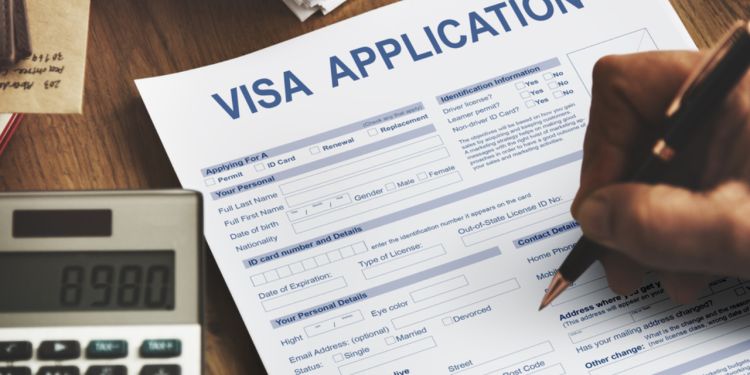Entering Spain for a short stay

You're thinking about a new life abroad and all the opportunities it can bring, but before you relocate to Spain to live, work or study, you'll have to find out whether or not you need a visa.
The answer will depend on your nationality and personal circumstances. Under the terms of the Freedom of Movement Act, you do not need a visa or other permit to live, work, visit or study in Spain if you're a national of the European Union, the European Economic Area (EU countries and Iceland, Liechtenstein and Norway) and Switzerland. Your national identity card or passport is sufficient. However, foreign nationals arriving from other countries will need a visa and sometimes a work permit.
Typically, individuals from non-EU/ EEA countries need a short-term tourist visa to stay in Spain for more than 90 days (in any 180-day period). They may also need one when moving to Spain for work purposes for less than 90 days.
Schengen visa (short-term)
Spain is a member of the Schengen Area, which comprises 27 countries that have abolished passports and other controls at their mutual borders. The Schengen tourist visa allows visitors to travel throughout the Schengen area for up to 90 days (in any 180-day period) for tourism, business, or cultural purposes.
To be eligible for this travel document, you must fulfill the entry criteria listed below:
- Be the holder of a valid passport or a short-stay visa, if one is required;
- Be able to prove you have a legitimate purpose for travel, such as tourism or business;
- Possess the financial resources to cover your stay and your return;
- Hold a travel insurance policy to cover any healthcare expenses during your stay—for example, repatriation for medical reasons.
However, citizens of more than 60 countries don't need a Schengen visa, provided they have a valid passport (in some cases, a biometric passport).
Visa-exempt countries include Andorra, Argentina, Australia, Brazil, Brunei, Canada, Chile, Costa Rica, El Salvador, the United States, Guatemala, Honduras, Israel, Japan, Malaysia, Mexico, Monaco, Nicaragua, New Zealand, Panama, Paraguay, the Republic of Korea, San Marino, Singapore, Uruguay and Venezuela. The complete list can be found on the Schengen Visa Information website.
If you are from a non-EU/EEA country that is not on this list, you can apply for a visa at the Spanish embassy or consulate in your home country. In addition to your passport or national ID card, you will be asked to bring documents supporting your stay and proof of sufficient funds to cover your costs while in Spain.
The Schengen visa serves several purposes, including:
Business visits: The Schengen visa allows individuals to attend conferences, meetings, or negotiations within Schengen countries. It enables easier travel and participation in business-related activities across multiple countries.
Family/friend visits: Those who have family or friends residing in Schengen countries can apply for a visa to visit them. This category permits individuals to spend time with their loved ones, attend family events, or simply go on a personal visit.
Tourism: This is one of the primary purposes of a Schengen visa. Individuals wanting to explore various countries within the Schengen Area can apply for a Schengen visa and visit multiple countries using a single visa without needing separate documents for each country.
Medical treatment: For cases where individuals need to seek medical treatment or undergo medical procedures in one of the Schengen countries.
Transit: A Schengen visa may be issued for transit purposes, allowing individuals to pass through one or more Schengen countries en route to their final destination. This type of visa is commonly used by travelers who have connecting flights or need to cross multiple Schengen countries to reach their intended destination.
The countries subject to an airport transit visa are Afghanistan, Bangladesh, Congo (DRC), Eritrea, Ethiopia, Ghana, Iran, Iraq, Nigeria, Pakistan, Somalia and Sri Lanka.
However, there may be exceptions for some individuals from these countries. For example, if they hold a residency permit from a Schengen member country; if the person is a close family member of an EU citizen; or they hold a diplomatic passport.
Cultural and sports events: This Schengen visa covers cultural, sports and religious events and film crews.
Official visits: This visa is granted to those who have received an official invitation to participate in the following activities: Consultations, negotiations, meetings, exchange programs and other events organized by intergovernmental bodies in the Schengen Zone.
For more information about the Schengen Visa, visit the Schengen Visa Information website.
Good to know:
The regular Schengen visa cost is €80. Children aged six to twelve qualify for a discounted fee of €40, while children below six years of age are exempt from payment.
Short-stay visa validity
There are three main types of Schengen visa validities:
Single-Entry Visa: This type of visa allows you to enter the Schengen Area only once during the specified period. Once you leave, the visa becomes invalid, even if you haven't used the full duration of stay permitted.
Double-Entry Visa: A double-entry visa allows you to enter the Schengen Area twice within the specified period. You can leave and re-enter once, but after the second exit, the visa is no longer valid.
Multiple-Entry Visa: This type of visa allows you to enter and exit the Schengen Area as often as you wish within the specified period.
Applying for your short-stay visa
To apply for a Schengen visa to travel to Spain, you need to follow these steps:
Depending on the purpose of your trip, you'll need to apply for a specific visa, such as a tourist, business, or family visit visa. Identify the right visa category for your trip.
Visit the official website of your country's Spanish embassy or consulate to review the requirements and conditions for obtaining a visa.
Download and fill out the Schengen visa application form, usually found on the embassy or consulate's website.
Collect the required documents. The documents you'll typically need to submit with your application include:
Valid passport: Make sure your passport is valid for at least three months beyond your intended stay in Spain and contains empty passport pages for visa stamps.
Passport-sized photos: Provide two recent, identical passport-sized photos.
Proof of travel medical insurance covering your entire Schengen Area stay.
A copy of your round-trip flight reservation showing dates and flight details.
Proof of accommodation in Spain, such as hotel bookings, rental agreements, or an invitation letter if staying with a friend or relative in Spain.
Financial proof such as bank statements, proof of employment, or any other document demonstrating your ability to cover your entire stay in Spain.
Contact your country's Spanish embassy or consulate to schedule an appointment to submit your visa application. During the interview, which will last for around 10 to 15 minutes, you will be asked about your intended trip, other related details, and some personal questions.
Some of the questions you might be asked are:
- Which Schengen countries do you want to visit? For what purpose?
- Do you have friends or family living in Europe?
- How long do you plan to stay? And where?
- Are you married? If so, for how long? What does your spouse do for a living?
- Do you have any children? If so, how old are they?
- What are your educational qualifications?
- Where will you be staying in Spain?
The final step of the application process is to pay your visa fee.
Good to know:
The earliest time you can apply for your visa is six months before your intended trip starts. The latest is 15 days working days before the departure date.
The waiting time for approval of a Schengen visa application can vary depending on various factors. Generally, the processing time for a Schengen visa application is around 15 calendar days, but it can sometimes extend up to 30 or even 60 days.
If your application is rejected, you have two options: you can appeal if you believe there was an error in the reason given, or you can take note of the feedback and address it when you apply the next time.
Extending your short-stay visa
If you want to extend your stay in Spain beyond the duration stated on your Schengen visa, you will have to apply for a visa extension. You need to provide a compelling reason to support your application. Otherwise, your chances of obtaining one will be significantly reduced. Several valid reasons can justify an extension of a Schengen visa:
Humanitarian reasons: An extension can be considered if you need to stay in the Schengen Area for humanitarian purposes, such as receiving medical treatment or visiting a family member who is seriously ill or in critical condition.
Force majeure: In case of extraordinary events like natural disasters, political unrest, or civil unrest in your home country or the Schengen Area, an extension can be granted to ensure your safety until the situation stabilizes.
Important personal reasons: If you have compelling personal reasons, such as an ongoing legal procedure, attending an important event or conference, or completing an educational course that cannot be finished within the initially granted visa period, an extension may be possible.
Late entry: This option is only available if you have a single-entry short-stay visa. It is your best chance to extend your visa if you entered the area after it became valid. For example, if it becomes valid on November 1 and you enter Schengen on November 15, you can apply for a two-week extension and will most likely get it.
To extend your short-stay Schengen visa, you will typically need to provide the following documents:
- Complete and sign an application form for the extension.
- A valid passport, which must have your current Schengen visa.
- Proof of having valid travel insurance that covers you for the entire extended period.
- You must demonstrate sufficient financial means to support yourself during the extended stay. This can be done by providing bank statements, proof of employment, sponsorship letters, or any other relevant documents.
- A photo that fulfills Schengen visa photo requirements (head covering 70-80% of the picture, color not black and white, light-colored background and 35x45mm wide).
- Documents that prove the need to extend your visa.
Good to know:
If this is the first time you´re applying for an extension, there will be no fee if the application is based on humanitarian or force majeure purposes. However, if it´s for personal reasons or late entry, a fee of 30 euros will be required.
If you need to extend your visa a second time, there will be a fee to pay. The exact amount will vary depending on your age. Minors are required to pay a fee of 30 euros, while adults will be charged 60 euros.
If your application is rejected, you will not be eligible for a refund.
Long-stay visas in Spain
If you plan to live, work or study in Spain for over three months and are not a citizen of the EU, Iceland, Liechtenstein, Norway or Switzerland, you will need a long-term visa. There are different types, depending on the reason for your stay, and include a work visa, a student visa, an internship visa, an EU Blue Card and a residency visa. For more information, contact the Spanish embassy or consulate in your country.
Important:
Following Brexit, the UK is now a non-EU country.
Good to know:
If you're going to live long-term in Spain, you will need to apply for a Foreigners' Identity Number (N.I.E - an abbreviation for Número de Identidad de Extranjero). You can do this at police stations or the Oficina de Extranjeros once in Spain or through a Spanish consulate or embassy in your home country. The N.I.E. is needed to open a bank account in Spain, pay taxes, work, buy a car, connect to utilities, start a business in Spain, and much more.
Useful link:
Ministerio de Trabajo y Economía Social (Ministry of Work and Social Economy)









